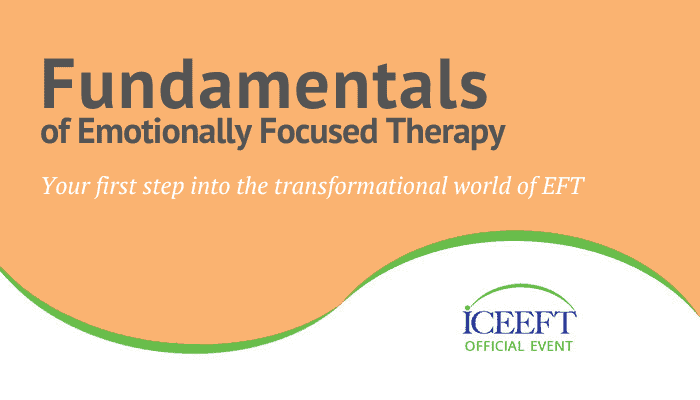What is EFT?
Emotionally Focused Therapy (EFT) is a humanistic, evidence-based approach to psychotherapy, drawing primarily from attachment theory to facilitate the creation of secure, vibrant connection with self and others. Rooted in the science of emotions and attachment, EFT helps clients identify and transform the negative processing and interaction patterns that create distress. It’s effective in treating individuals (EFIT), couples (EFCT), and families (EFFT), addressing a wide range of issues from marital distress to individual anxiety and trauma.
For therapists, EFT offers a clear, structured path to helping clients. It focuses on the development of emotional intelligence and awareness, enabling therapists to guide clients in recognizing and expressing their emotional needs more effectively. By fostering a secure attachment bond, EFT enables clients to respond to their partners and family members in healthier, more constructive ways.
The modality’s efficacy is well-supported by empirical, peer reviewed outcome research, making it a credible and respected approach in the therapeutic community.
Dr Sue Johnson
Engaging with EFT training enriches a therapist’s practice, equipping them with skills that are effective and versatile. It not only enhances therapeutic outcomes but also contributes significantly to professional development, helping therapists stand out in their field with a specialized, in-demand skill set. EFT’s focus on emotions and attachment is universally applicable, making it an invaluable tool for therapists looking to deepen their impact and expand their practice.
Why Become an EFT Therapist?
Emotionally Focused Therapy (EFT) is renowned for its high success rates, especially in couples therapy, where it consistently delivers lasting positive outcomes. Positive outcomes have been noted for individual depression, anxiety and trauma symptoms as well as the effective management of threat responses. This efficacy is driving a growing demand for EFT practitioners, as awareness of mental health’s importance increases. Learning EFT not only enhances a therapist’s professional skills but also makes them more versatile, able to offer specialized services across various settings such as private practices, clinics, and to diverse populations. The principles of EFT can significantly contribute to a therapist’s personal growth, deepening their understanding of relationships and emotional dynamics. Being an EFT therapist can also mean contributing to a growing body of research, helping to validate and refine this therapeutic approach further. Beyond these professional advantages, there is a profound sense of job satisfaction that comes from using EFT to help clients achieve meaningful changes in their relationships, making the role of an EFT therapist both professionally rewarding and personally fulfilling.
Deep Impact
EFT is renowned for its effectiveness in relationships, sense of self, and in improving emotional bonds, making a profound difference in clients’ personal and relational well-being.
Strong Scientific Foundation
EFT is grounded in attachment theory, offering a solid, research-based framework for understanding human emotions and relationships.
Community and Support
ICEEFT represents a global network of EFT therapists. A uniquely supportive community, ICEEFT membership offers opportunities for ongoing learning and collaboration.


EFT Training
Emotionally Focused Therapy (EFT) offers three distinct training paths, uniquely tailored to provide effective therapy for individuals, couples, and families. Each path is specialized to address the specific needs and dynamics of these different relational units, ensuring targeted and impactful therapeutic interventions.
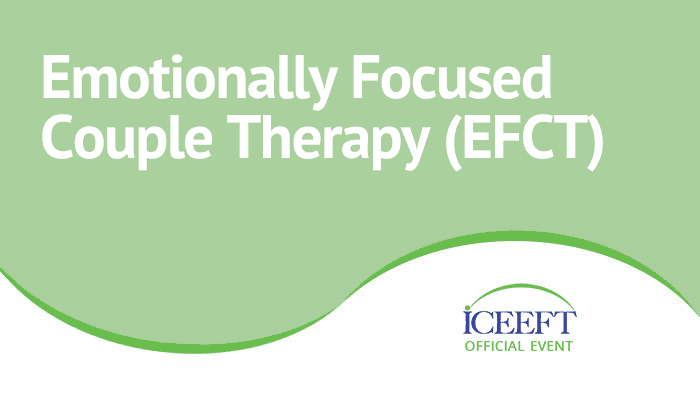
EFT For Couples
Emotionally Focused Couple Therapy (EFCT) helps couples to build strong, healthy relationships by exploring and changing emotional dynamics to enhance mutual understanding and closeness.
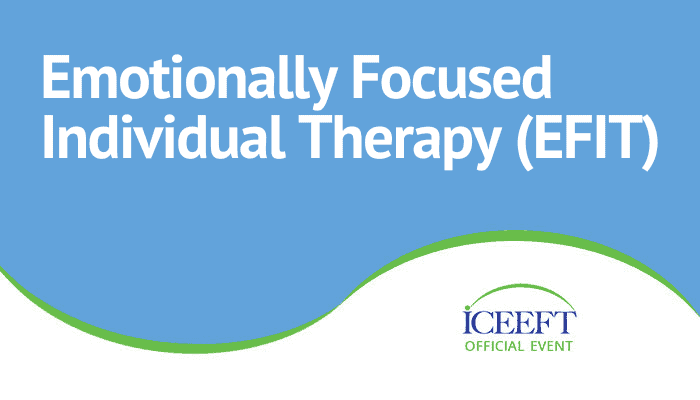
EFT for Individuals
Emotionally Focused Individual Therapy (EFIT) is a groundbreaking therapeutic model that facilitates emotional processing and the creation of secure relationships with self and others.
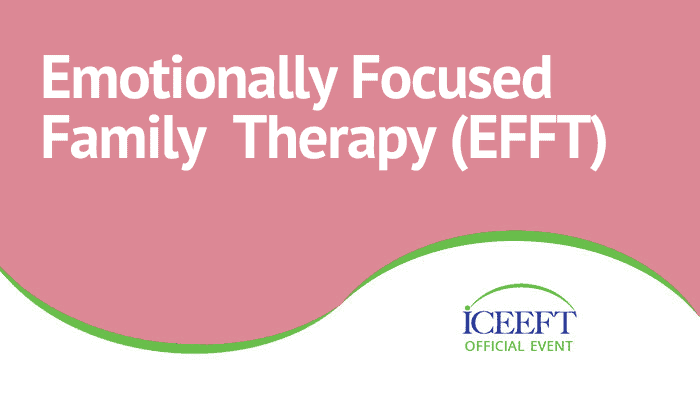
EFT for Families
Emotionally Focused Family Therapy (EFFT) extends the principles of Emotionally Focused Therapy to mend and fortify familial bonds.
Professional development
Emotionally Focused Therapy offers a clear path for certification in its various modalities, providing a valuable opportunity for therapists to specialize and excel in this impactful approach. Achieving certification in EFT signifies a high level of expertise and commitment, enhancing your professional credibility and skill set. This certification journey not only elevates your practice but also opens doors to a community of like-minded professionals and a wealth of resources and support.
EFT supervisors play a crucial role in the global expansion and refinement of Emotionally Focused Therapy. Through their guidance and expertise, they mentor new therapists, ensuring the fidelity and effectiveness of EFT practices worldwide. Their contributions are invaluable in fostering a skilled EFT community and in maintaining the high standards of this therapeutic approach across diverse cultures and settings.
Testimonials
EFT therapists share glowing testimonials about Emotionally Focused Therapy, praising its transformative impact on clients’ relationships. They highlight EFT’s profound ability to foster deep emotional connections and healing. These testimonials underscore the therapy’s effectiveness and the immense satisfaction therapists feel in witnessing significant, positive changes in their clients’ lives through the application of EFT principles.
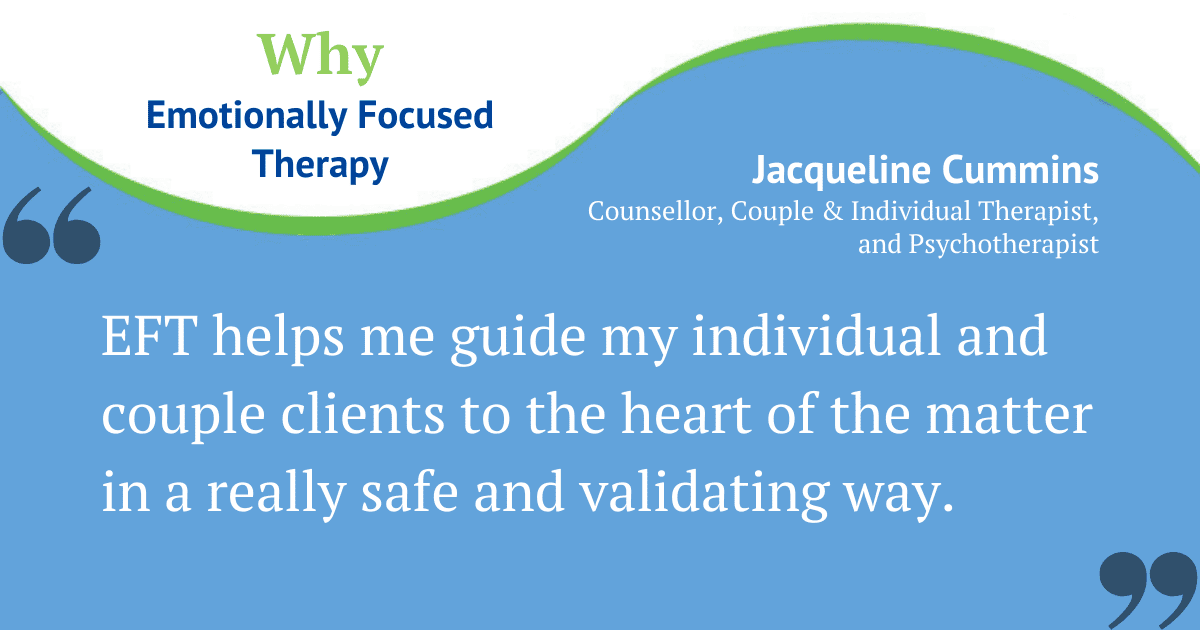
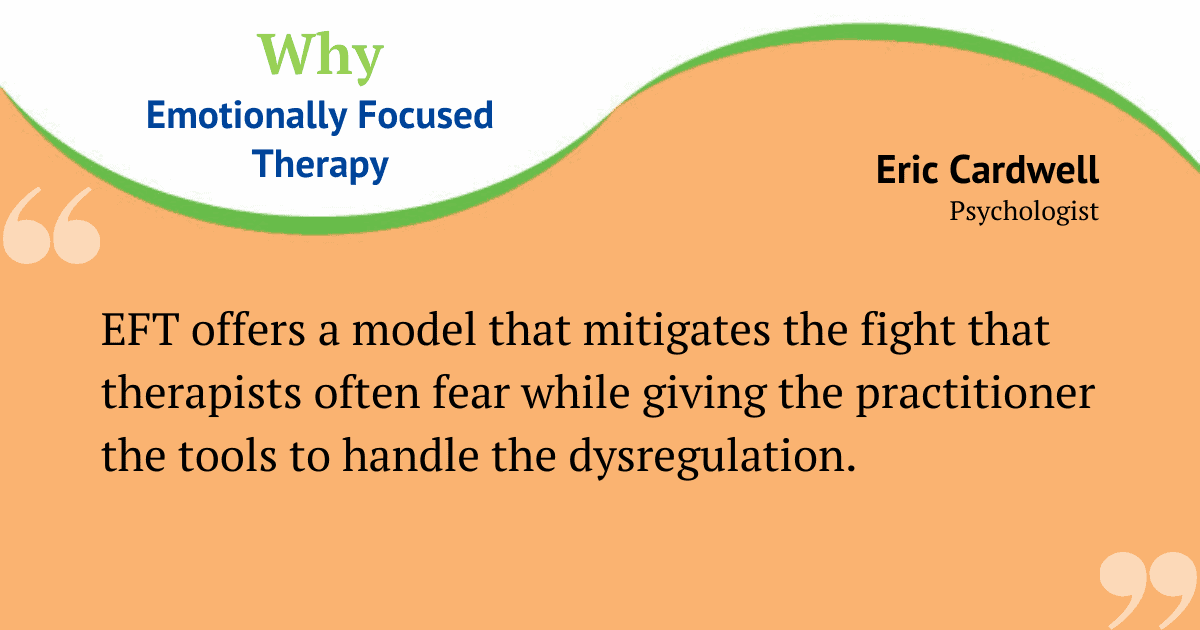
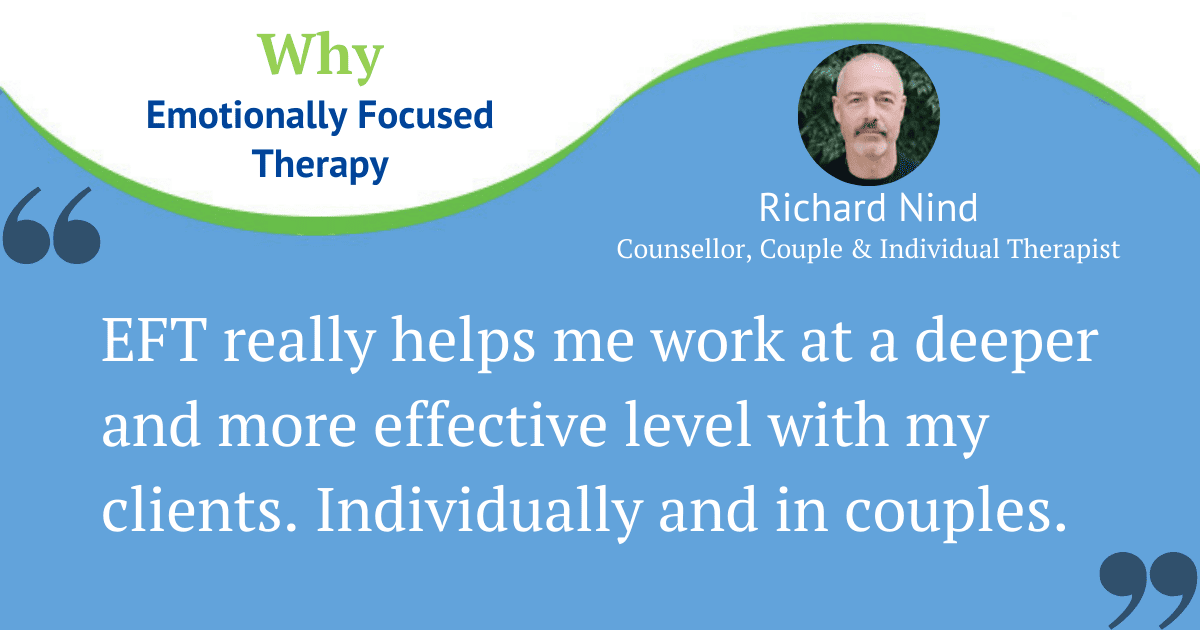
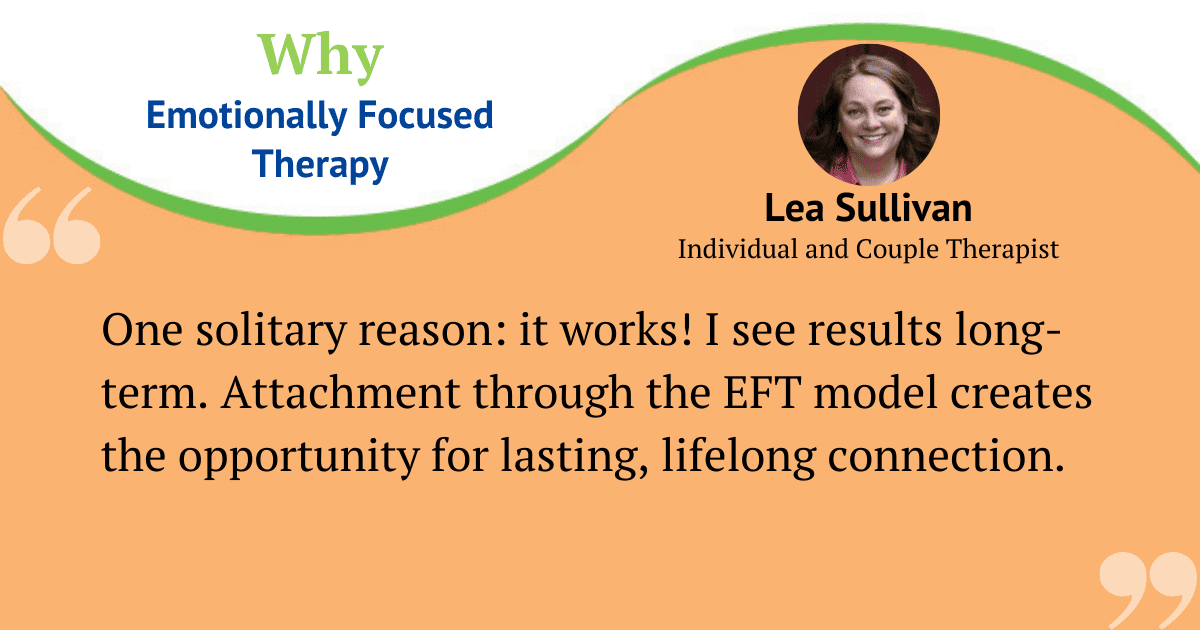
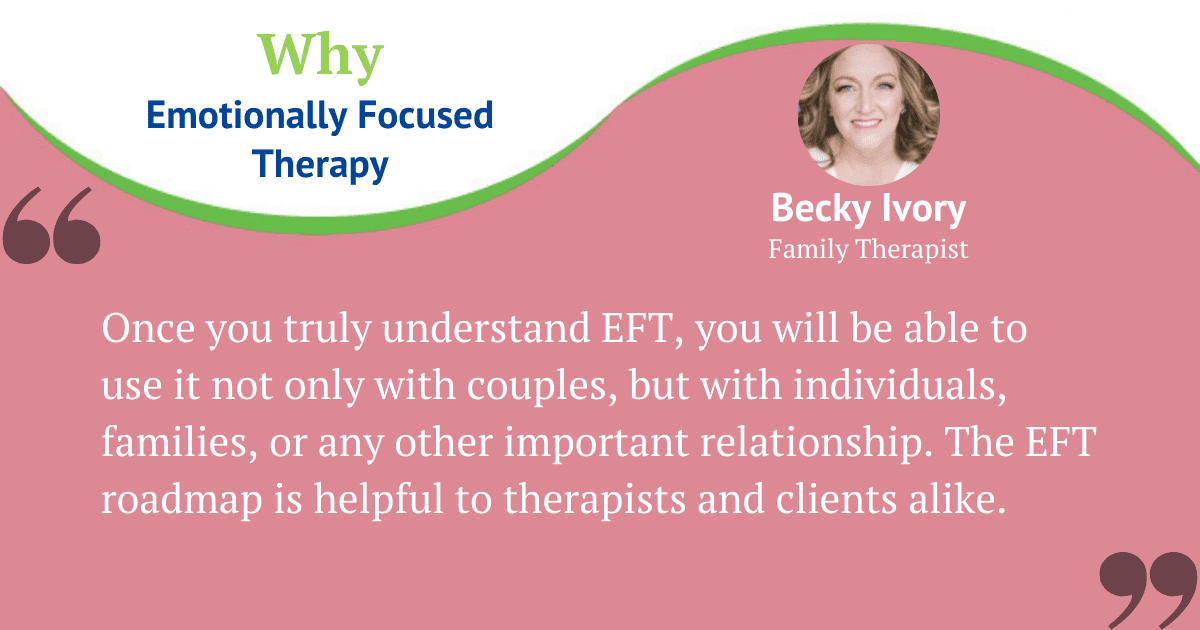
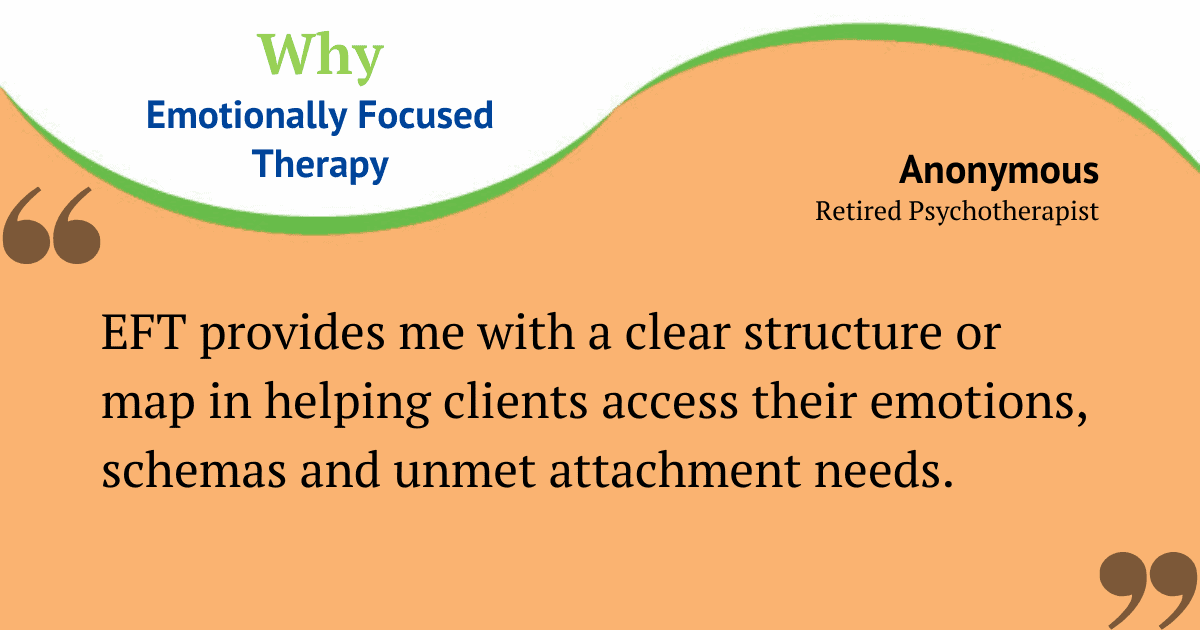
A Good First Step
Embarking on your journey with Emotionally Focused Therapy (EFT) ideally begins with the 1-day Fundamentals course. This course lays the foundational knowledge and skills essential for EFT practice, providing an intensive and comprehensive introduction to the core principles and techniques of this approach in individual, couple and family therapy. It’s an ideal starting point for anyone looking to understand and apply EFT in their professional practice.

